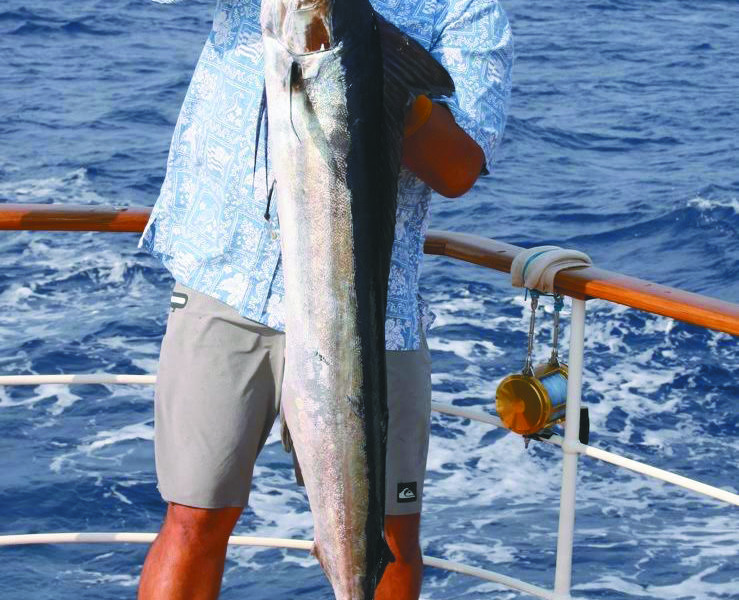Crew Eye features photos with details on the scene and the photographer. Send us images of yachting as you see it, in all its beauty…

Giving back gives crew a sense of community, even when at sea
Sep 14, 2015 by Alene KeenanOne of the things I love most about being land-based now after 20 years at sea is the opportunity to get involved in my community. When I worked on yachts, I reached a stage where I was tired of finding ways to amuse myself and wanted to find a bigger identity outside of yachting to share common interests.
One boat I worked on stayed in various ports for such long periods of time that we felt like locals. We were able to interact in local charity events frequently, and it felt great. People were usually fascinated with the yacht and happy that we would help out around town.
These days I am surprised by the number of new stews I meet who express a desire to be affiliated with some particular group. Being physically separated from terra firma for long periods of time makes new crew feel emotionally isolated from society, and they don’t know where to turn.
There are lots of groups associated with yachting and many people new to yachting are curious about what benefits they provide and how to get involved. The problem, though, is that it is almost impossible to attend meetings on a regular basis, given yachting’s unpredictable schedule. As a result, young crew never really feel like they belong, which was the point in the beginning.
Sometimes there are individual fundraisers, seminars or events to participate in, and crew can check the web sites of groups such as the International Superyacht Society (www.superyachtsociety.org) or the Marine Industry Cares Foundation (www.marineindustrycares.org) to see if events coincide with the yacht’s itinerary.
When they don’t, crew can always make a difference when they hit the shore by cleaning beaches, helping with building schools or homes, or participating in Spin-a-thons or other local projects.
Nowadays there are different types of communities to be involved in. Besides geographic communities, there are tons of virtual groups that are united by a certain belief or goal that crew would enjoy. These virtual communities provides unlimited opportunities for people to connect via media as well as face to face.
Any involvement in community organizations helps young yachting professionals learn the impact of helping others via community service. There are many groups listed online, but crew must do their homework and investigate them before getting involved. Here is a partial listing:
* Young Professionals in Yachting, a non-profit formed to promote ethical business practice and educate and facilitate success for young professionals within the yachting business community.
* The Professional Yachting Association (PYA) is non-profit organization that provides guidance for crew working and living onboard yachts. It provides ongoing support and information regarding training and certification, practical information about career development, and regulatory compliance, and works as an advocate with policy makers to increase awareness of the yachting profession. www.pya.org
* The Boys & Girls Club of America is noteworthy for working with local youth shoreside to provide programs and services that instill a sense of competence, usefulness and belonging. This is a great group to be involved with. It has a lot of support from the yachting community and crew can help many places they are docked. There are often organized events that welcome crew to participate.
* Volunteermatch.org is a Web site that provides volunteer information and listings in different communities. Visit the site to see the calendar and information for all kinds of activities in the United States.
* Oceana, founded in 2001, is the largest international organization focused solely on ocean conservation.
* Oceanswatch works with developing countries to provide environmental education in places such as Vanuatu and the Solomon Islands.
* EcoCrew is a registered charity that works with the superyacht community to redistribute unwanted items to communities in need and raise awareness.
* Sierra Club, the oldest and largest environmental group in America.
* Humane Society, the largest animal protection agency in the United States.
* World Wildlife Federation, an international non-governmental organization working on issues regarding the conservation, research and restoration of the environment.
* Goodnet.org lists global opportunities and organizations.
* International SeaKeepers Society was founded by yacht owners and environmental advocates for ocean research, conservation and policy decisions regarding sea research and education to protect the world’s oceans.
* YachtAid Global, a non-profit started by a yacht captain who uses the travel of yachts to distribute goods and provide service to coastal communities across the globe.
Being involved with a charity organization creates a sense of citizenship and stewardship, no matter where we are. It helps develop leadership, communication, and organizational skills by working within a larger community.
We spend our yachting careers in a very exclusive lifestyle, and it is easy to lose touch with those less fortunate. It is powerful to learn how to use one’s unique knowledge and experience as a resource to enrich the lives of those less fortunate. Small opportunities to help others surround us every day.
In the words of Winston Churchill, “We make a living by what we get; we make a life by what we give.”
Alene Keenan has been a yacht stew for more than 20 years. She is the author of “The Yacht Guru’s Bible: The Service Manual for Every Yacht”, available on amazon.com and http://createspace.com/5377000. Contact her at [email protected].
Topics:




